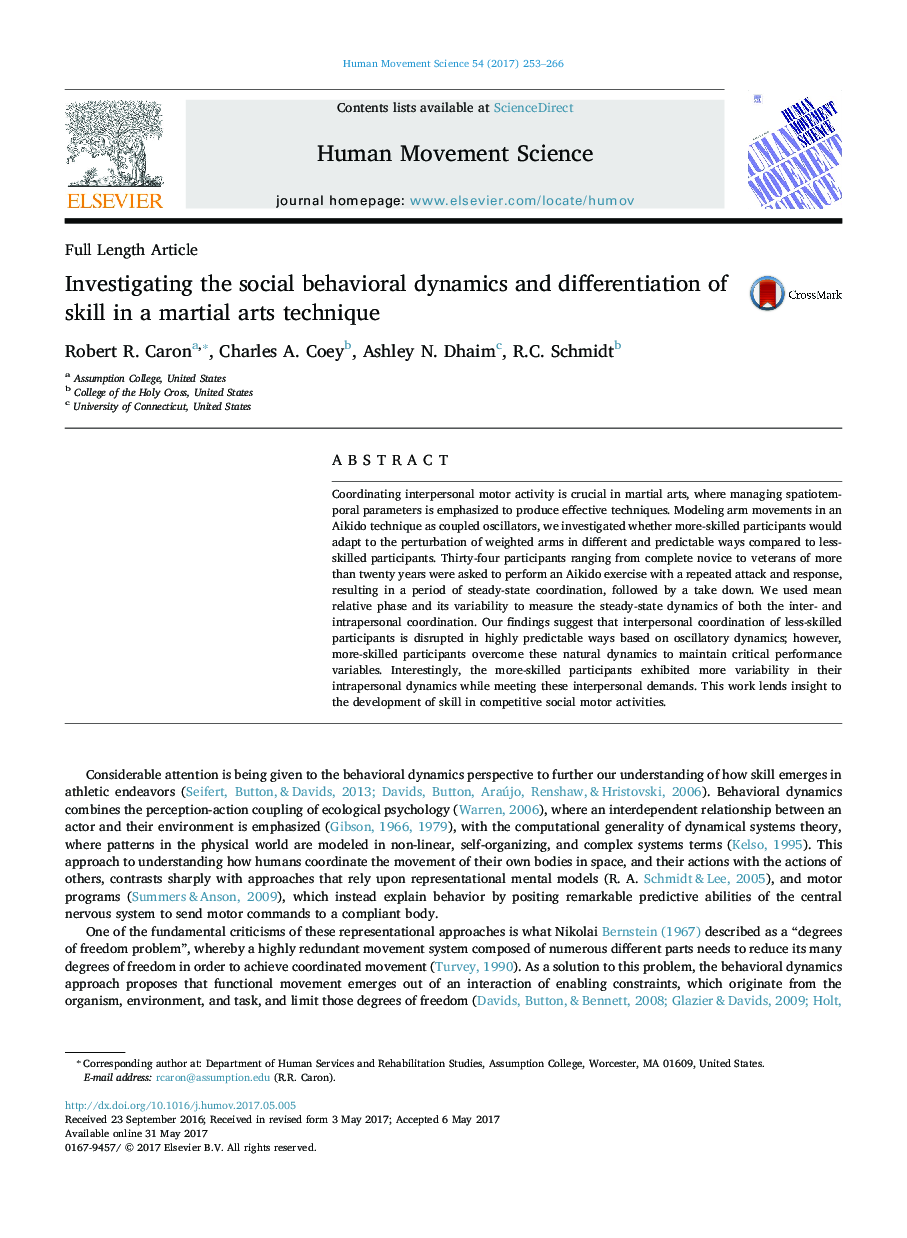| Article ID | Journal | Published Year | Pages | File Type |
|---|---|---|---|---|
| 5041985 | Human Movement Science | 2017 | 14 Pages |
Coordinating interpersonal motor activity is crucial in martial arts, where managing spatiotemporal parameters is emphasized to produce effective techniques. Modeling arm movements in an Aikido technique as coupled oscillators, we investigated whether more-skilled participants would adapt to the perturbation of weighted arms in different and predictable ways compared to less-skilled participants. Thirty-four participants ranging from complete novice to veterans of more than twenty years were asked to perform an Aikido exercise with a repeated attack and response, resulting in a period of steady-state coordination, followed by a take down. We used mean relative phase and its variability to measure the steady-state dynamics of both the inter- and intrapersonal coordination. Our findings suggest that interpersonal coordination of less-skilled participants is disrupted in highly predictable ways based on oscillatory dynamics; however, more-skilled participants overcome these natural dynamics to maintain critical performance variables. Interestingly, the more-skilled participants exhibited more variability in their intrapersonal dynamics while meeting these interpersonal demands. This work lends insight to the development of skill in competitive social motor activities.
